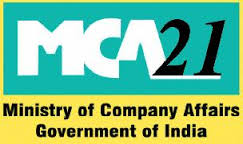Key Highlights –
- Commencement of business – Declaration by the Director: The Ordinance states that a company may not commence business, unless it (i) files a declaration within 180 days of incorporation, confirming that every subscriber to the Memorandum of the company has paid the value of shares agreed to be taken by him, and (ii) files a verification of its registered office address with the Registrar of Companies within 30 days of incorporation. If a company fails to comply with these provisions and is found not to be carrying out any business, the name of the Company may be removed from the Register of Companies.
Any default in complying with the said will invite a fine of INR 50,000 to be paid by the company.
- Removal of a Company’s name from the register – If the Registrar has enough reason to believe that a company is not carrying on business then he, after a physical verification of the registered office, can remove the company’s name from the register of companies. The ROC can strike off a company if the address of Registered Office is bogus or an incomplete/ improper address.
- Issue of shares at a discount: The Act prohibits a company from issuing shares at a discount, except in certain cases. On failure to comply, the company is liable to pay a fine between one lakh rupees and five lakh rupees every officer in default may be punished with imprisonment up to six months or fine between one lakh rupees and five lakh rupees. The Ordinance changes this to remove imprisonment for officers as a punishment.
- Further, the company and every officer in default will be liable to pay a penalty equal to the amount raised by the issue of shares at a discount or five lakh rupees, whichever is lower. The company will also be liable to refund the money received with interest at 12% per annum from the date of issue of the shares.
- Alteration of Articles – After this amendment, any conversion of a Public Company to a Private Company will not be valid unless approved by an order of the Central Government. Previously, the power to issue such an order was with the Tribunal.
- Registration of charges: The Act requires companies to register charges (such as mortgages) on their property within 30 days of creation of charge. The Registrar may permit the registration within 300 days of creation.
- The Ordinance changes this to permit registration of charges: (i) within 300 days if the charge is created before the Ordinance, or (ii) within 60 days if the charge is created after the Ordinance. If the charge under the first category is not registered within 300 days, it must be completed within six months from the date of the Ordinance. If the charge under the second category is not registered within 60 days, the Registrar may grant another 60 days for registration.
- Annual Return: Annual Return should be filed within 60 days from the date of the AGM, failure to this, penalty of Rs. 100 per day to Company + directors maximum Rs. 5 Lakh apart from ROC delay charges is applicable.
- Penalty of Rs. 5 lakhs to Company secretary certifying wrong Annual Return.
- Annual Financial Statement: Filing of Balance sheet with ROC within time limit- failure is costly for Company + Directors both. Penalty of Rs.100 per day + Rs. 1 lakh to Company + Director each.
- Resignation of Auditor: The Return must be filed by the resigning Auditor within 30 days, failure to which the resigning Auditor is liable for penalty of Rs. 50,000 plus Rs. 500 per day.
- Disqualification of Directors: A director can not become director in more than 20 companies. If he continues, he becomes disqualified now.
- Company Secretary: Appointment of Company Secretary on the payroll (Private Companies having paid-up capital Rs. 5 crores & above) is mandatory. Default is now very costly- penalty increased substantially.
- ROC may strike off a company if subscribers have not paid initial share capital after incorporation of a Company within 6 months.
- Financial Year: The Indian subsidiary or associate or holding company of the foreign company may be allowed to follow any period as its financial period on an application made by such company if it is required for consolidation of its financials with the foreign company. Also the such period may or may not be one year.
- Change in approving authority: Under the Act, change in period of financial year for a company associated with a foreign company, has to be approved by the National Company Law Tribunal. Similarly, any alteration in the incorporation document of a public company which has the effect of converting it to a private company, has to be approved by the Tribunal. Under the Ordinance, these powers have been transferred to central government.
- Declaration of beneficial ownership: If a person holds beneficial interest of at least 25% shares in a company or exercises significant influence or control over the company, he is required to make a declaration of his interest. Under the Act, failure to declare this interest is punishable with a fine between one lakh rupees and ten lakh rupees, along with a continuing fine for every day of default. The Ordinance provides that such person may either be fined, or imprisoned for up to one year, or both.
- Resolutions and agreements to be filed – If the company fails to file a resolution and agreement before the specified time, the company shall be liable to pay INR 1,00,000 as penalty and in case of a continuing failure it will be extended further by INR 500 per day subject to a maximum penalty of 25 lakhs. For any officer who is liable, the penalty is of INR 50,000, and in case of a continuing failure it will be extended further by INR 500 per day subject to a maximum penalty of 5 lakhs.
- Penalties in different sections – In section 191, the penalty is increased from a minimum of INR 25,000 to a minimum of one lakh rupees. In section 441, The maximum limit is increased from 5 lakh rupees to 25 lakh rupees.
Read the Ordinance Text Companies-Amendment-Ordinance-2019






